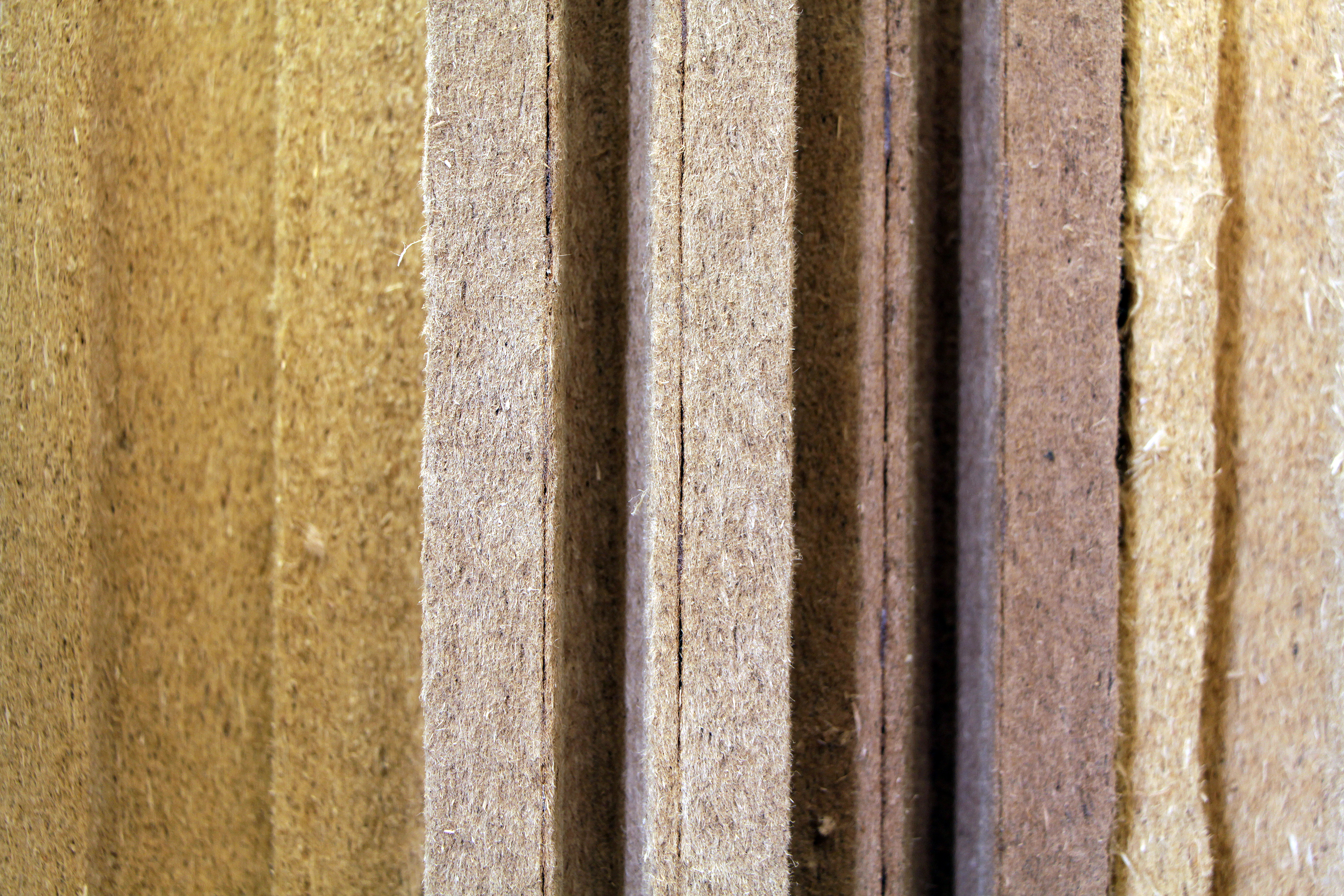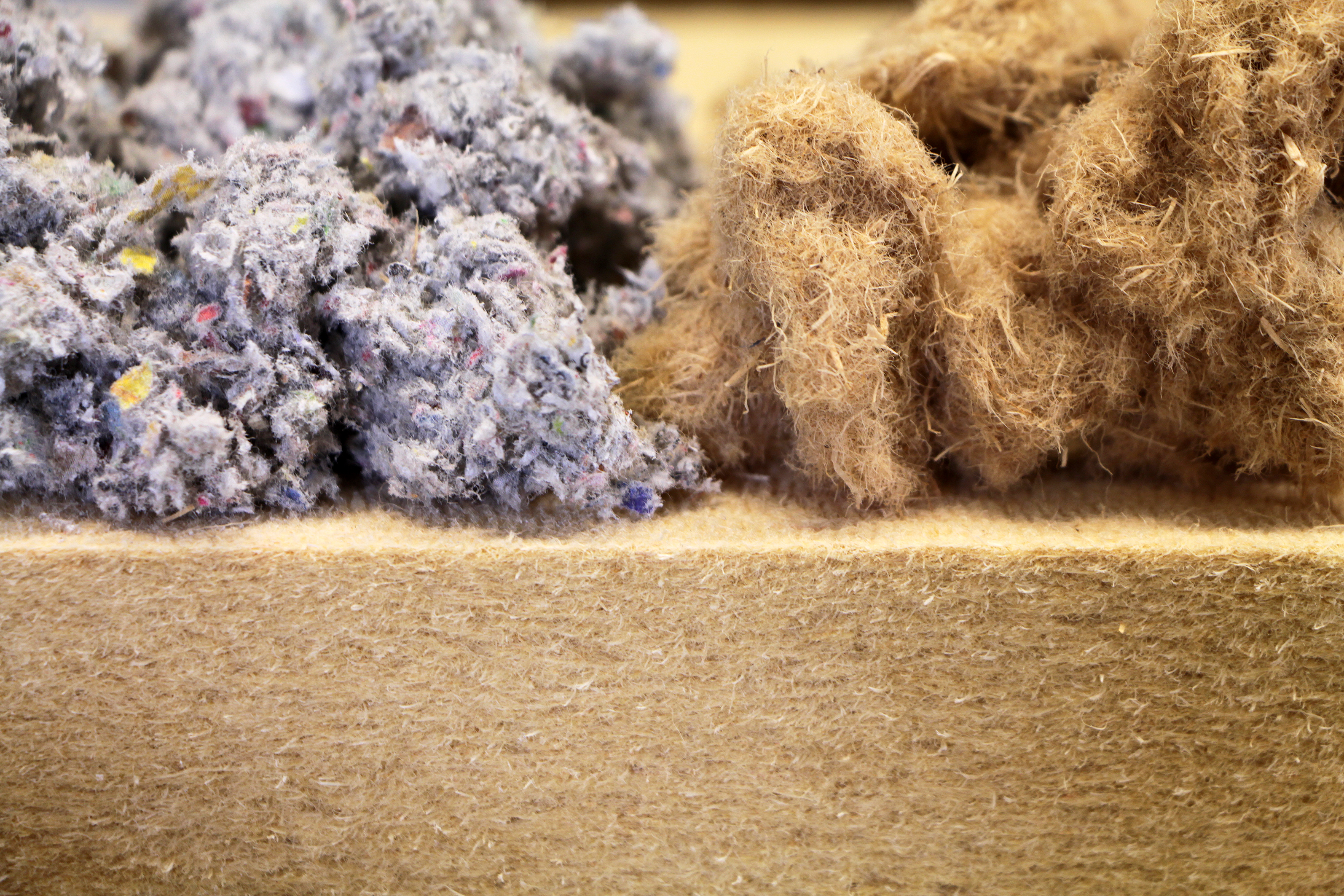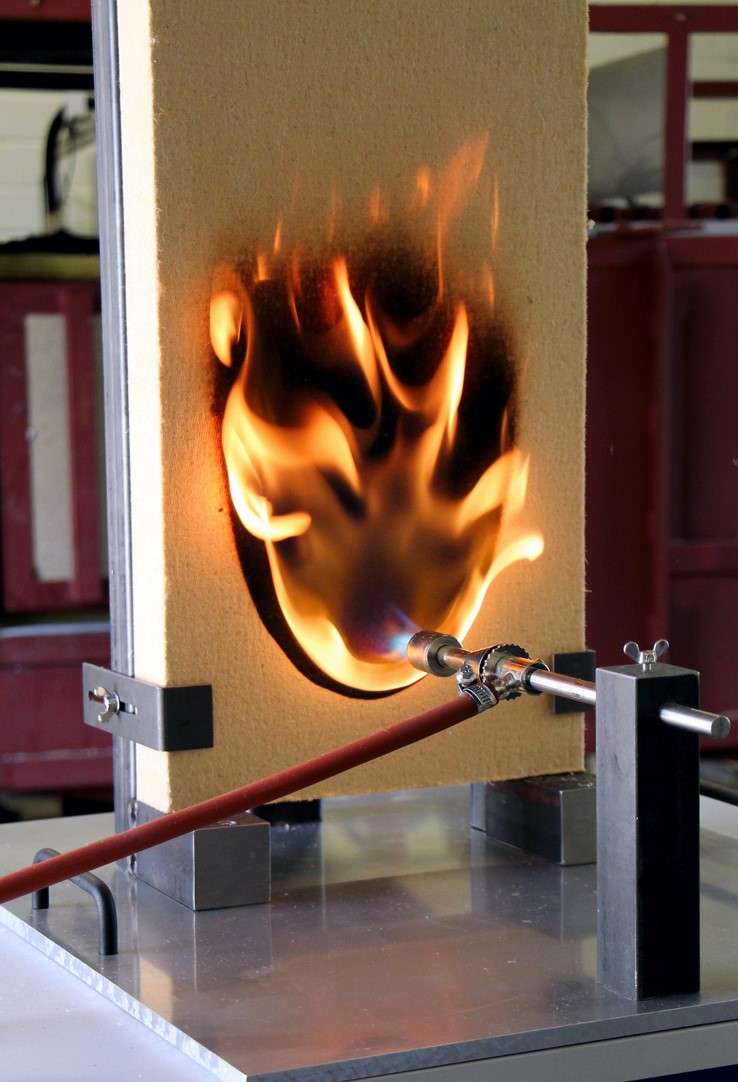In order to make the applicability easier for manufacturers, planners and processors of these insulation materials, the researchers involved in the project determine the material parameters which, for example, can reduce complex component testing in sound insulation and fire protection. Furthermore, the participants want to remove real application constraints. This applies, for example, to standards and other building regulations which came into being in times in which insulation materials made from renewable raw materials barely existed. A further objective is therefore the development of measurement procedures which take better account of the specific properties of insulation materials made from renewable raw materials. In order to demonstrate the additional benefits of the insulation materials, the project participants also carry out sustainability evaluation.
The six working areas of the project, “Fire protection and glimmer behavior”, “Sound insulation”, “Thermal insulation”, “Sustainability evaluations”, “Moisture protection” and “Emissions”, lead initially to a holistic overview of the subject. In the working area of “Fire protection”, the researchers establish the parameters for the calculation of the fire resistance duration in constructions with insulation materials made from renewable raw materials (“NawaRo”), a "B1 equivalent" for thermal insulation composite systems as well as a fire protection guideline for building classes 4 and 5. As an independent material property of these insulation materials, the glimmer behavior is also investigated. In order to assess and, if necessary, mathematically determine the acoustic behavior of components, the scientists in the working area “Sound insulation” compile the appropriate primary data and parameters. In the working area of “Thermal insulation”, the project partners investigate the moisture-dependent thermal conductivity and verify possibilities for reducing this. Evaluations of sustainability provide a quantifiable representation of the positive additional benefits of the insulation materials. In the working area of “Moisture protection”, the researchers develop methods for the material and application-oriented investigation of mold resistance. The project partners in the working area “Emissions” demonstrate the risks associated with the emission of health-impairing or olfactorily-relevant substances and show how these can be minimized if necessary. Furthermore, they also examine the extent to which insulation materials made from renewable raw materials can contribute to a reduction of the pollutant concentration in room air.
The Fraunhofer WKI is participating in the project:
The Fraunhofer WKI is involved in the following working areas:
- Project coordination
- Thermal insulation
- Moisture protection
- Emissions
- Fire protection and glimmer behavior
 Fraunhofer Institute for Wood Research
Fraunhofer Institute for Wood Research 



